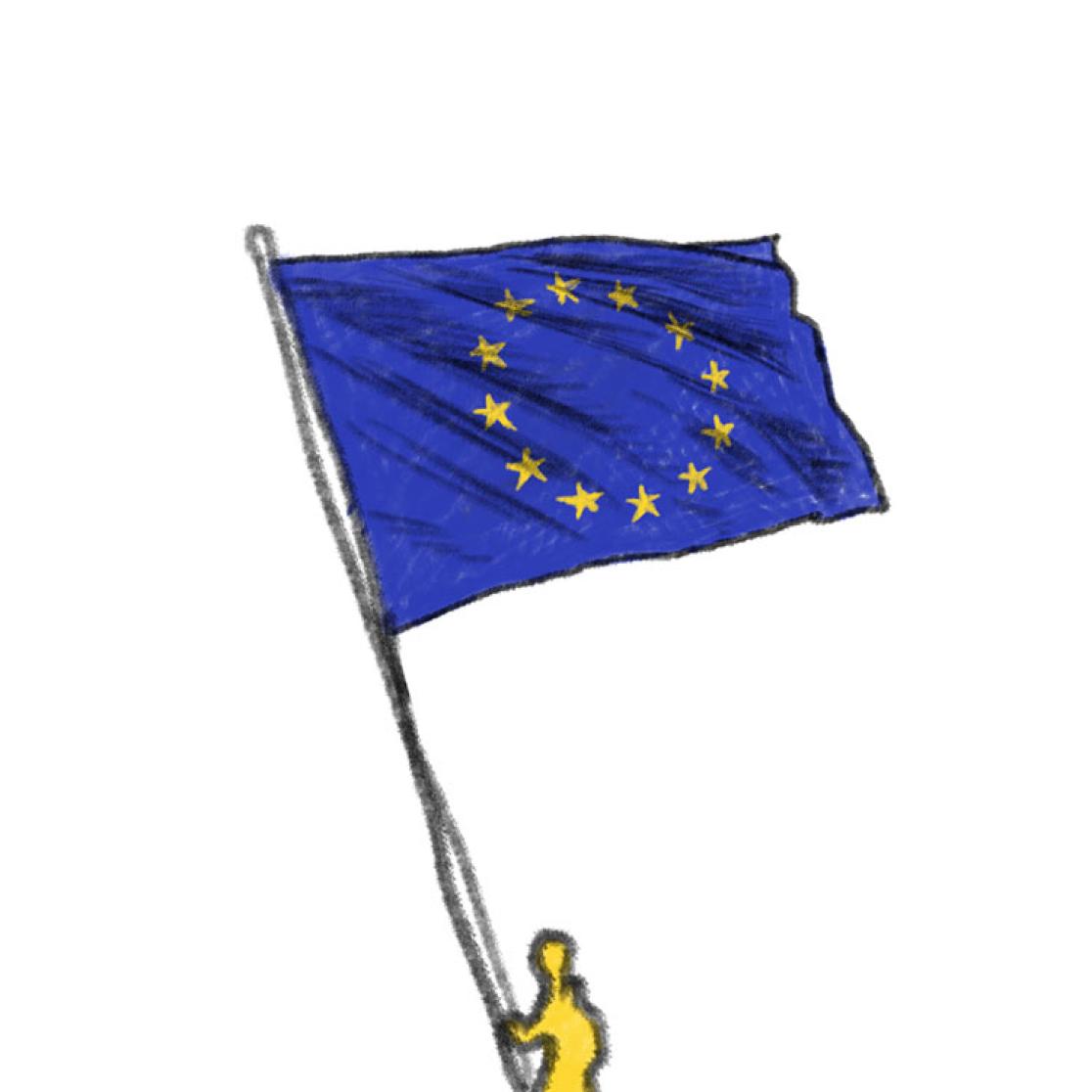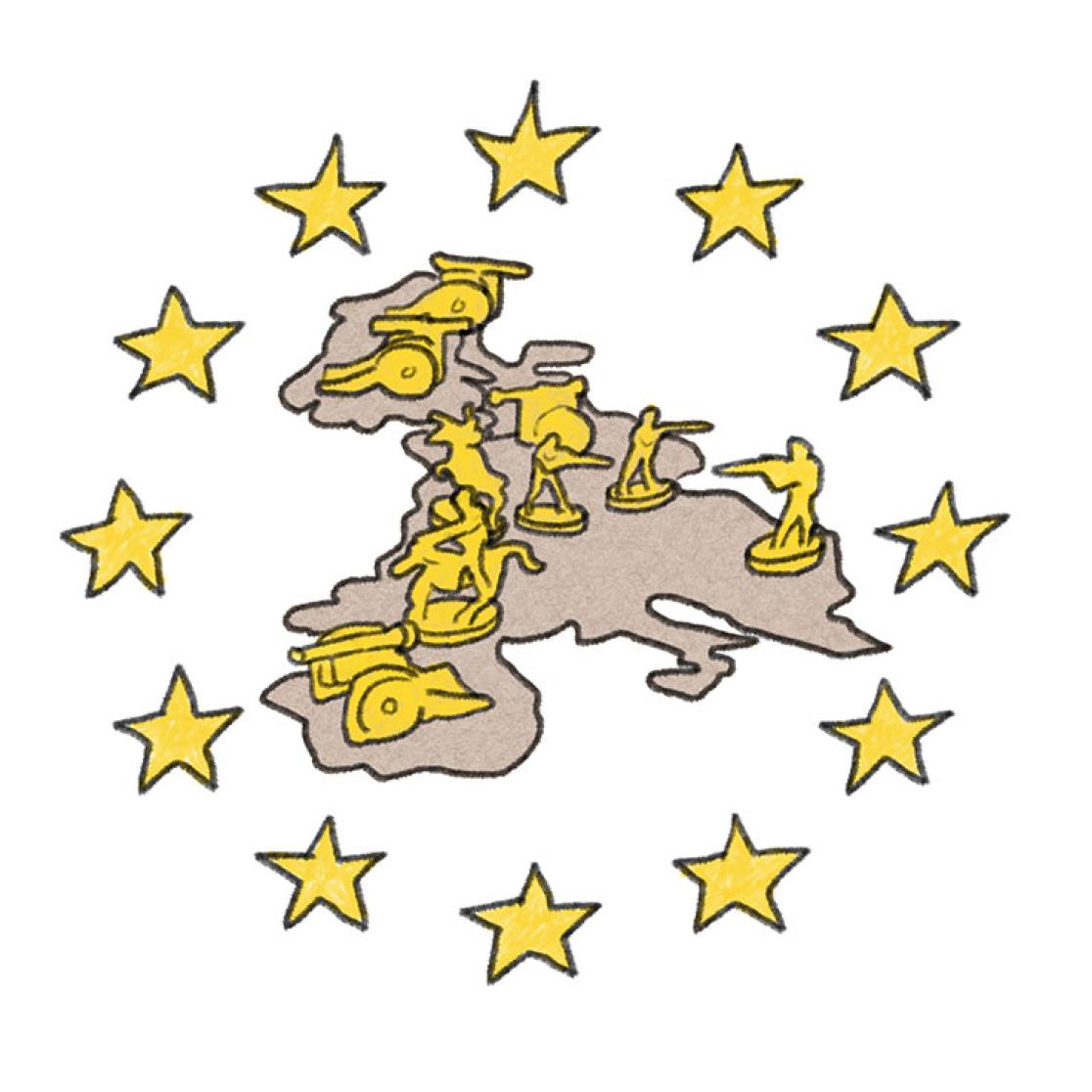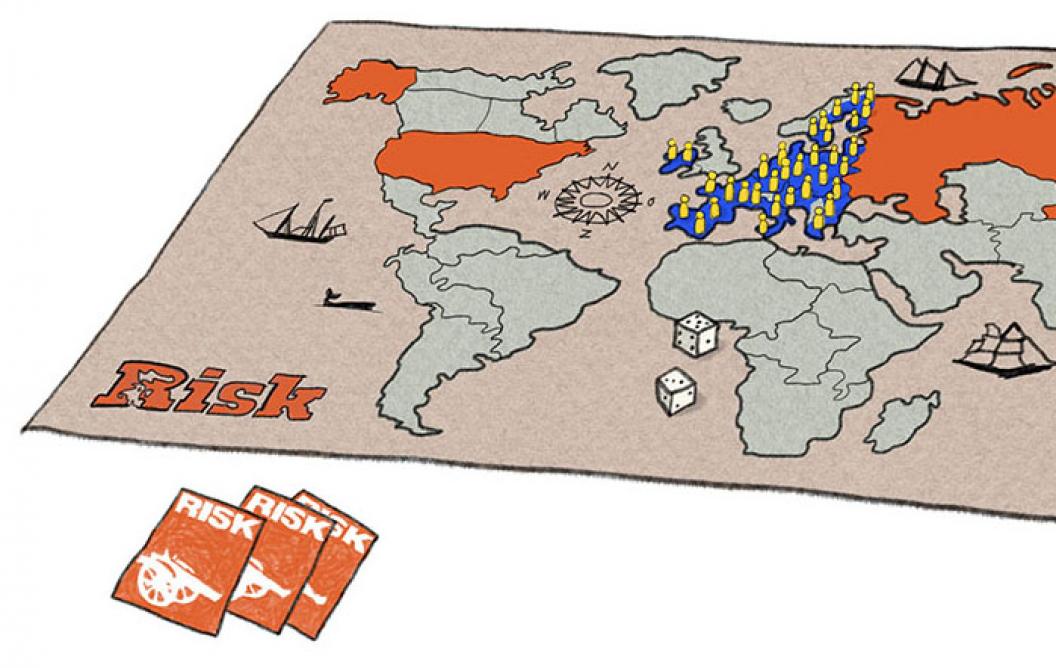Is Europe becoming a world power?
The world order is shifting. Putin continues to taunt Europe. China’s global expansionism seems limitless. And how to respond to the United States’ renewed desire for cooperation? The European Union’s answer should be greater strategic autonomy, says Sophie Vanhoonacker, professor of Administrative Governance and Jean Monnet professor. “Europe has to become less idealistic and stand up more for its own interests around the world.”
President Joe Biden is breathing new life into the relationship between Europe and America. “Compared to Trump, it can only be positive,” Sophie Vanhoonacker laughs. During his recent visit, Biden called for repaired relations. But he also called for the China policy to be harmonised and for Europe to form a front against autocratic countries—for Europe, a step too far. “Europe has different interests and can’t be as critical. There’s also the concern as to who will succeed Biden. It could be Trump again, or someone in the Trumpian mould.”
Europe’s reticence to follow Biden’s hard line towards China shows that it wants to go its own way in security and military affairs, Vanhoonacker says. “There’s been a growing awareness since the end of the Cold War in 1989. Will America remain committed to European security? Not that this has led to much in the way of concrete action.” Ironically, it may have been Trump, with his America First policy, who got the ball rolling. Developing greater strategic autonomy is now official EU policy. This means investing more in its own security and building up its own military power.
Own direction
Vanhoonacker explains why Europe has to set its own geopolitical course. “The world order is shifting. The bipolar order between East and West during the Cold War was not ideal, but it was stable and transparent: the threat was clear. Europe stood at the centre of that conflict. But other world powers are now emerging, especially China. Periods of transition naturally go hand in hand with instability and uncertainty, with America’s attention shifting to Asia.”
Additionally, the EU is not seen as a global power by the other major powers. “They respect it as a trading power, but when it comes to the geopolitical game it’s not taken seriously. Europe is militarily dependent on America and NATO.”
Political model
China, the EU’s largest trading partner, is a different story. The country is fast becoming an empire with an unprecedented global role in information technology, capital provision, and logistical, diplomatic, military and cultural power. With its Belt and Road Initiative, a colossal global infrastructure programme offering investments and loans for high-speed links, airports and shipping routes, China is currying favour with individual countries, including in Central and Eastern Europe. “And it’s succeeding, because there are no political strings attached to its aid, not even for dictatorial regimes. This way China is able to increase its influence all over the world, and with that, its political model.”
“That’s a concern,” Vanhoonacker continues, “but we can’t afford to put China in a corner. We export a lot to them and are highly dependent on Chinese imports for medicines, certain raw materials and other products. China is also a major player in the context of climate change. But Europe is becoming more cautious. The EU’s new global strategy of 2016 talks about ‘principled pragmatism’. Europe has its principles, but we mustn’t act like some sort of naive missionary; we have to defend our interests and industry.”

Hard men
In Vanhoonacker’s view, the new world order demands a different type of power play. “It’s a rougher world, with hard men like Putin and the Chinese president playing the power game. They bang their fists on the table, spare nothing and nobody. Europe is still learning that. We’re a peace project, used to discussing and resolving our conflicts peacefully. That’s worked well within Europe, but it doesn’t work geopolitically.”
In other words, Europe must learn to exercise coercive power. “Internally, this is a first step towards less fragmentation and more cooperation in military mobility and innovative defence. As for foreign policy, relations with Russia are seen as consisting of three components: push back, constrain and engage. Push back on human-rights violations. Constrain by improving our own security. And engage on issues like the fight against corona and the climate crisis.” Whether unanimity can be achieved in terms of security remains an open question. Will the EU ever form a joint power bloc? “That’s far from certain. But the pressure to act together is increasing. The urgency is high.”

